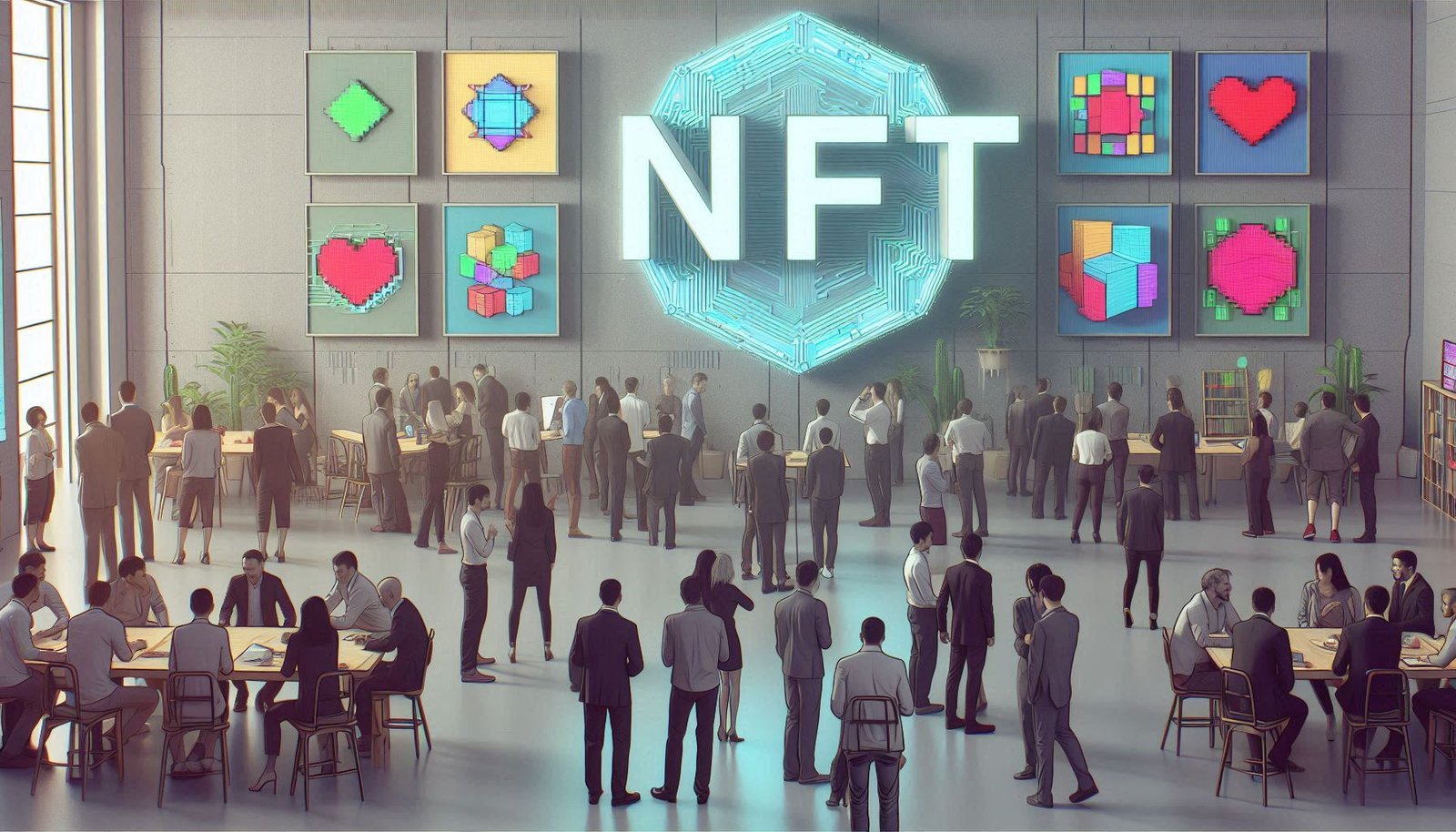
Building a Marketplace for Unique Digital Assets
In recent years, the rise of Non-Fungible Tokens (NFTs) has revolutionized the digital landscape, creating a plethora of business opportunities. NFTs are unique digital assets that represent ownership of a specific item or content, ranging from art and music to virtual real estate and collectibles. As the demand for NFTs continues to grow, building a platform for buying and selling these assets has become an attractive business venture. This article explores the business opportunities within the NFT space, the steps to create a successful NFT marketplace, and the potential challenges and rewards of entering this innovative business sector.
Understanding NFTs and Their Business Potential
What are NFTs?
NFTs, or Non-Fungible Tokens, are digital tokens that use blockchain technology to verify ownership and authenticity. Unlike cryptocurrencies such as Bitcoin or Ethereum, which are fungible and can be exchanged for one another, NFTs are unique and cannot be replaced with something else. This uniqueness makes them ideal for representing ownership of digital art, music, videos, virtual goods, and more.
The Business Landscape of NFTs
The NFT market has exploded in recent years, with sales reaching billions of dollars. Major brands, artists, and celebrities have entered the space, creating a vibrant ecosystem for creators and collectors alike. This surge in interest presents numerous business opportunities, including:
- Creating an NFT Marketplace: Building a platform where users can buy, sell, and trade NFTs.
- NFT Minting Services: Offering services that allow creators to mint their own NFTs easily.
- NFT Marketing and Promotion: Providing marketing services to help artists and brands promote their NFTs.
- NFT Consulting: Advising businesses on how to integrate NFTs into their existing models.
- NFT Gaming: Developing games that incorporate NFTs as in-game assets.
Building an NFT Marketplace: A Step-by-Step Guide
Step 1: Market Research
Before diving into the business of building an NFT platform, conducting thorough market research is essential. Understand your target audience, analyze competitors, and identify gaps in the market. This research will help you define your unique selling proposition (USP) and tailor your platform to meet the needs of users.
Step 2: Choose a Blockchain
Selecting the right blockchain is crucial for your NFT marketplace. Ethereum is the most popular choice due to its robust smart contract capabilities, but other blockchains like Binance Smart Chain, Flow, and Tezos are also gaining traction. Consider factors such as transaction fees, scalability, and community support when making your decision.
Step 3: Develop the Platform
Building the platform involves several key components:
- User Interface (UI): Create an intuitive and user-friendly interface that allows users to navigate easily.
- Smart Contracts: Develop smart contracts to facilitate transactions, ensuring security and transparency.
- Wallet Integration: Integrate cryptocurrency wallets to enable users to store and manage their NFTs.
- Search and Filter Options: Implement search and filter functionalities to help users find specific NFTs quickly.
Step 4: Implement Security Measures
Security is paramount in the NFT business. Implement robust security measures to protect user data and assets. This includes using secure coding practices, conducting regular security audits, and offering two-factor authentication (2FA) for user accounts.
Step 5: Launch and Market Your Platform
Once your platform is ready, it’s time to launch. Develop a marketing strategy to attract users to your NFT marketplace. Utilize social media, influencer partnerships, and content marketing to create buzz around your platform. Consider hosting virtual events or auctions to engage potential buyers and sellers.
Step 6: Provide Ongoing Support and Updates
After launching your platform, it’s essential to provide ongoing support to users. Address any issues promptly and gather feedback to improve the platform continuously. Regular updates and new features will keep users engaged and encourage repeat business.
Challenges in the NFT Business
While the NFT business presents exciting opportunities, it also comes with its challenges:
- Market Volatility: The NFT market can be highly volatile, with prices fluctuating dramatically. This unpredictability can deter potential investors.
- Regulatory Concerns: As the NFT space evolves, regulatory frameworks are still being developed. Staying compliant with laws and regulations is crucial for long-term success.
- Environmental Impact: The energy consumption of blockchain networks, particularly Ethereum, has raised concerns about the environmental impact of NFTs. Exploring eco-friendly alternatives can be a selling point for your business.
- Competition: The NFT marketplace is becoming increasingly crowded. Differentiating your platform and offering unique features will be essential to stand out.
The Future of NFT Business
The future of the NFT business looks promising, with potential growth in various sectors. As more industries recognize the value of digital ownership, the demand for NFT platforms will likely increase. Here are some trends to watch:
- Integration with Virtual Reality (VR) and Augmented Reality (AR): NFTs are expected to play a significant role in VR and AR experiences, allowing users to own and trade virtual assets in immersive environments.
- Expansion into Traditional Industries: Traditional industries, such as real estate and fashion, are beginning to explore NFTs for ownership verification and digital collectibles.
- Increased Interoperability: Future NFT platforms may focus on interoperability, allowing users to transfer their NFTs across different blockchains and platforms seamlessly.
The business opportunities within the NFT space are vast and varied. Building a platform for buying and selling NFTs can be a lucrative venture, provided you conduct thorough research, develop a user-friendly platform, and implement effective marketing strategies. While challenges exist, the potential rewards of entering the NFT business are significant, especially as the market continues to evolve. By staying informed and adaptable, entrepreneurs can carve out a successful niche in this exciting digital frontier.
Read more : Complete Guide Crypto Business





